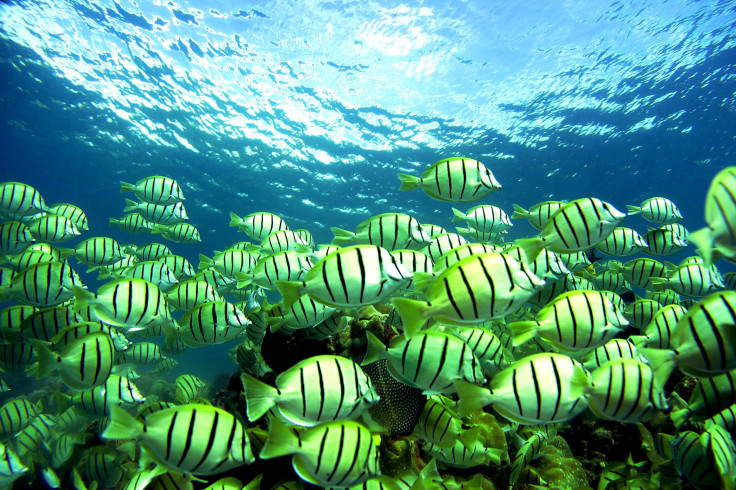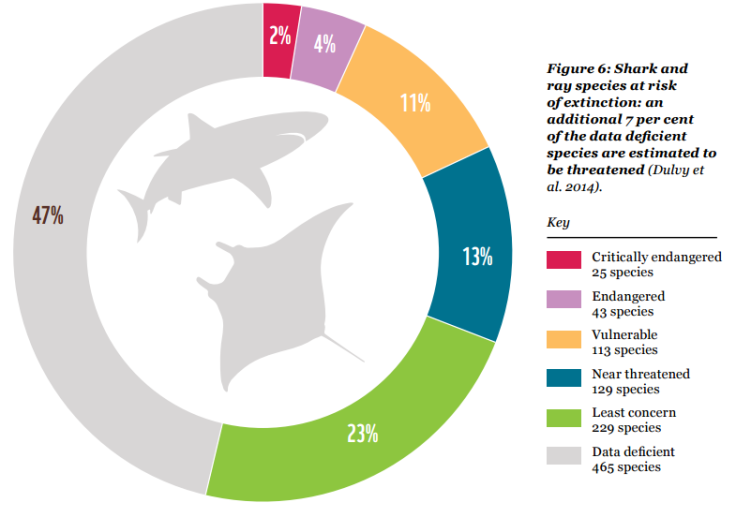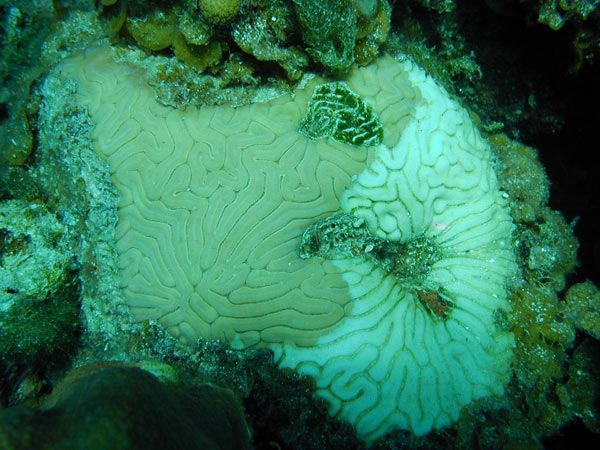Nearly Half Of World's Marine Life Has Been Wiped Out In Just 40 Years, WWF Study Finds

One of the most extensive surveys of marine life has unearthed an alarming trend. A new study, conducted by the World Wide Fund for Nature (WWF), shows that between 1970 and 2010, global populations of marine mammals, fish, birds and reptiles have dropped by half, and that some species of fish essential to the global food supply -- including tuna and mackerel -- have declined 74 percent.
In the emergency edition of the “Living Blue Planet” report released Wednesday, the WWF put the blame for this drastic decline on unsustainable overexploitation of marine resources, and on pollution and anthropogenic climate change.
“The picture is now clearer than ever -- humanity is collectively mismanaging the ocean to the brink of collapse,” Marco Lambertini, director general of WWF International, said, in a statement accompanying the report. “Considering the ocean’s vital role in our economies and its essential contribution to food security -- particularly for poor, coastal communities -- that’s simply unacceptable.”
The findings of the report were based on trends in 5,829 populations of 1,234 marine species -- nearly twice as many as in past studies -- providing an “even clearer picture of ocean health.”
For example, in addition to 29 percent of global fish stocks that are overexploited, overfishing now threatens around one in four species of sharks, rays and skates.

“Overfishing not only affects the balance and interaction of life in the ocean, but also the social and economic well-being of the coastal communities that depend on fish for their way of life,” the WWF said, in the report.
Recent studies have shown that as a result of humans emitting more carbon dioxide into the atmosphere, the acidity of surface ocean waters has increased by about 30 percent since the beginning of the industrial revolution, and global average sea levels have gone up by nearly 7 inches in the past 100 years.
In addition to marine mammals, fish and reptiles, the effect of this disruption in the normal pH levels in Earth’s oceans is also evident on coral reefs -- delicate marine biodiversity hotspots that grow in symbiosis with algae.
“Coral reefs provide some of the most biologically rich, productive and economically valuable ecosystems on Earth. Over 25 per cent of all marine species live in coral reefs, and yet they cover less than 0.1 per cent of the ocean,” the WWF said in its report. Additionally, the reefs also protect the coast from storms and erosion, and generate jobs and income from fishing and tourism.
However, a recent study sounded the alarm over widespread coral bleaching in the Pacific -- a phenomenon that occurs when corals are stressed due to increasing temperatures and acidity. Three-quarters of the world’s coral reefs are currently threatened and, at the current projected levels of acidification and warming, the world might lose all its coral reefs by 2050.

According to the WWF, “reef associated” fish species -- those that live or feed on, or near, coral reefs -- dropped by 34 percent between 1979 and 2010.
“Many reef-associated fish such as the various species of groupers are important food sources both commercially and for local subsistence. While overexploitation was listed as the primary threat to the majority of populations, habitat degradation and loss, climate change and invasive species were also identified as significant threats,” the WWF said in the report.
Highlighting the severity of the crisis, the WWF urged global leaders to ensure that ocean recovery and coastal habitat health feature strongly in the implementation of the United Nations’ sustainable development goals for the next 15 years that will be formally approved later this month. Additionally, the report also stressed the need to stop “catastrophic” levels of warming and acidification through reduction of greenhouse gas emissions.
“In the space of a single generation, human activity has severely damaged the ocean by catching fish faster than they can reproduce while also destroying their nurseries,” Lambertini said. “Profound changes are needed to ensure abundant ocean life for future generations.”
© Copyright IBTimes 2024. All rights reserved.





















